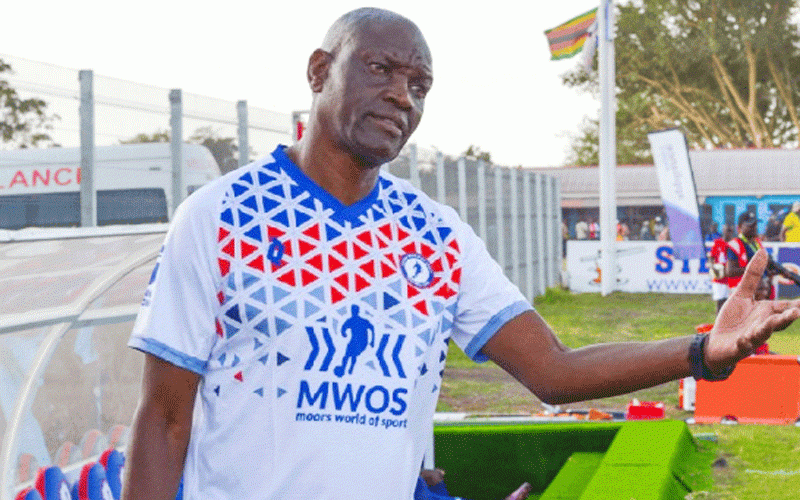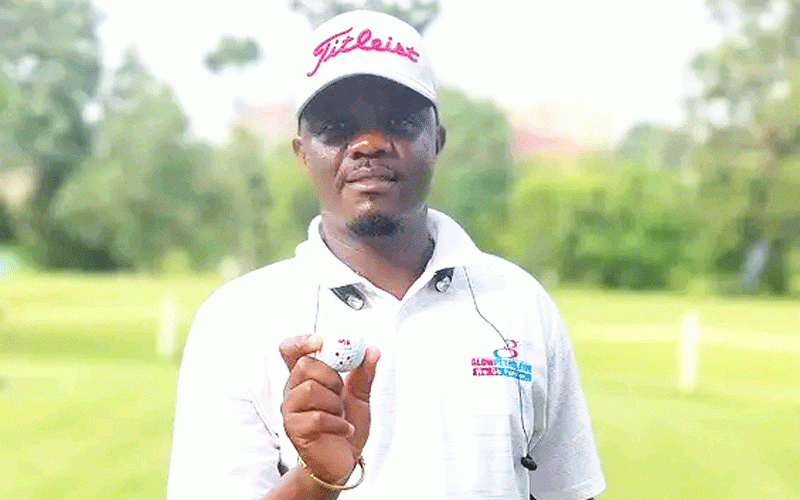
The late great Shacky Tauro, Joel Shambo, and Stanley “Sinyo” Ndunduma must be turning in their graves over how the great CAPS United Football Club — a team that they built — has fallen from grace to grass.
Inside Sport with Michael Kariati
What is on parade today is no longer the great CAPS United team that was virtually invincible in knockout tournaments to the extent of being dubbed the “Cup Kings”.
It is no longer the same side that in 1996, with the inspirational Alois Bunjira and Stewart Murisa, swept all that stood before them in the Premiership. It is no longer the same team that in 2004 and 2005 under the guidance of Charles Mhlauri and parading the likes of Energy Murambadoro, Joseph Kamwendo and Cephas Chimedza, was simply unstoppable.
The creative and attractive short passing game is gone and gone too are the individual skills from the likes of Stanford “Stix” Mtizwa, Joel “Jubilee” Shambo, Stanely “Sinyo” Ndunduma, Chimedza, and Bunjira that brought pride to the Makepekepe family.
In their place now is a CAPS United that is so inept, so lacking in creative and firepower to an extent that it has written its own piece of history following a 6-0 humiliation in the Zimbabwe National Army Charity Cup final at the hands of an FC Platinum side which is itself struggling in the Premiership.
Also gone is the sound management style that was the envy of the whole Premiership as Julius Chifokoyo, and later Shepherd Bwanya, and others before them that guided the ship through plain waters with no strikes or fights over non-payment of bonuses.
In their place today is a breed of leaders who cannot even raise funds to enable a team to travel to Bulawayo to fulfill a league match against Bantu Rovers.
- CAPS United dismiss player strike reports
- CAPS United rob Wha Wha
- CAPS Utd salvage point in four-goal thriller
- Inside sport: What has gone wrong at Dynamos?
Keep Reading
In Bwanya and Chifokoyo’s place is a new type of leadership that can have players wait in the city centre until the middle of the night on Christmas Eve, only to make them leave without attending to their end of year payment grievances.
In fact, the sight of their coach a few days before the Bantu Rovers debacle tells the story of the real state of affairs at the Green Machine.
I met Taurayi Mangwiro walking down Chinhoyi Street with his huge training bag, which appeared too heavy for him, strapped on his back.
I expect Mangwiro, coach of the third biggest football team in the country in terms of crowd attendances, to be driving the smallest of cars, a Toyota Fun Cargo or even a Nissan March — or being chauffeur driven to his Mufakose home if he cannot drive.
Yet, for his troubles, Mangwiro has to go home in a crowded commuter omnibus, riding along with the same people who threaten his life at stadiums. Sometimes, it is said, he has to dig deep into his own pocket for that transport fare back home as the club cannot afford to provide him dignified transport.
That is now the life at the Green Machine.
But to say that CAPS United do not generate enough money to sustain themselves would be making a mockery of Zimbabwean football. Their problems are of their own making. They are a good example of a football club being run badly.
While we might try to turn a blind eye to the chaos reigning at the former Cup Kings, the major problem at the club lies in its management structure in which the club president Twine Phiri runs virtually everything. While he might have done well as chairman of the Premier Soccer League, Phiri has let CAPS United fans down.
Although from the outside, CAPS United appear to have a chief executive officer and an executive that runs the day-to-day affairs of the club, the truth is that he is there to carry out duties as instructed by the club president.
Yes, Dynamos might be suffering because their huge financial pot has too many dirty hands digging into it, but what of CAPS United who are owned by one individual?
Any football follower will tell you that a team with such prodigious talent as Tafadzwa Dube, Hardlife Zvirekwi, Ronald Pfumbidzai, Kennedy Bulaji, and Dominic Chungwa, should be somewhere better than where it is today.
But due to mismanagement, misconceptions, and a self-inflicted financial crisis, CAPS United are in depths of despair.
If I was the Premier Soccer League boss myself, I would employ people with the know-how to run a football team and then enjoy my financial pickings from the club.
But tell that to most Zimbabwean football club owners, and all you do is create enemies.
Are we a one day wonder?
On August 31, Harare Sports Club resembled a venue for a musical show as Asians, Blacks, coloureds, and whites were all united as they beat their drums, sang and danced with joy, celebrating Zimbabwe’s historic three-wicket win over the world’s top ranked ODI team, Australia.
Although Zimbabweans are entitled to reflect on that victory with pride, there are fears that the famous win will come to pass as just a one day wonder, should there be no other such achievements in the immediate future.
While Zimbabwe has not played regularly against the top ranked teams, they need more of those victories each time we face big teams for us to believe that we can challenge the best in the world.
Right now, we are living in dreamland, believing we are good enough when we have failed to convincingly beat small teams on a regular basis.
Defeat at the hands of associate teams like Afghanistan who came to Zimbabwe in July for a Series that ended 2-2 and the heartbreaking loss to Ireland during the ICC World Twenty 20 in Bangladesh, quickly come to mind.
One thing that is clear is that the bridge between Zimbabwe and the other Test playing nations is widening while the gap between the Chevrons and the Associate teams is narrowing.
Zimbabwe is no longer in the same league with the likes of India, Australia, South Africa and others, but is slipping down and could soon join the likes of Afghanistan and Ireland.
Zimbabwe Cricket’s financial situation which saw them failing to pay the team has not done the sport any good as players like Craig Ervine, Kyle Jarvis, Charles Coventry, and Graeme Creemer have taken their talents elsewhere.
Despite those challenges, Zimbabwe have always found the resolve to punch above their weight, as shown by the win over Australia. The Test win over Pakistan in 2013 raised hopes for the Zimbabwe fans who last saw the Chevrons beating a top side in 2011 when they stunned New Zealand in an ODI.
With the Series against Australia and South Africa now done and gone, Zimbabwe will now have to show the progress they made in their tour of Bangladesh. This will be Zimbabwe’s last competitive Series before the World Cup, to be co-hosted by Australia and New Zealand.
As we brace for the World Cup in which Zimbabwe is also in the same group with India, South Africa, the West Indies, Pakistan, Ireland, and the UAE, one question that needs to be answered is whether we should continue to rely on the same inconsistent old guard that has failed to bring in the required results.
It is high time experienced players like Elton Chigumbura start to take a leaf from other international players and perform consistently for the national side.
Having scored a match winning 52 runs against Australia, it was disappointing to see Chigumbura go out cheaply for 13 in the next game against South Africa. The same should be said of Brendan Taylor, Prosper Utseya, Vusi Sibanda and Hamiltom Masakadza who at one time was the youngest player to score a Test century on his debut.
Surely, given the international exposure they have gained over the years, it is high time these senior players start winning matches for Zimbabwe.
Should they continue to underperform, the question that we should start asking ourselves is: are they good enough to sustain realistic challenge or is it time to give others a chance? Between now and the World Cup is the time for coach Steve Mangongo to make sacrifices. He has to pick the best team for the World Cup — not based on association or reputation, but on the capability to deliver.
For views and comments, email: [email protected], or WhatsApp on 077 3 266 779.











